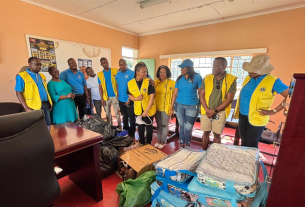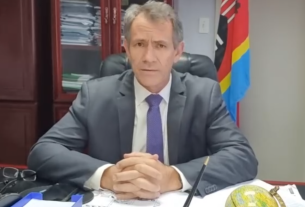By Mfanufikile Khathwane(Intern)
SIGCAWENI – The United Nations has praised Eswatini for its environmental leadership, highlighting its impressive 30% forest cover, which is three times above the 10% global minimum recommended by the Food and Agriculture Organization (FAO), as well as its early action on climate change.
This recognition was made yesterday by UN Resident Coordinator George Wachira during the national commemoration of Desertification and Drought Day 2025, held at Sigcaweni High School in the Lubombo region.
Wachira commended Eswatini’s successful elimination of ozone-depleting chlorofluorocarbons (CFCs) under the 1987 Montreal Protocol, a milestone the country reached as early as 2007 three years ahead of the global target. He further applauded the kingdom’s sustained forest cover, which significantly exceeds international expectations.
These achievements are not by chance. They reflect Eswatini’s strong national leadership and its commitment to working closely with communities, the private sector, and development partners like the UN,” he said.
The Resident Coordinator also recognised grassroots initiatives such as the Yonge Nawe programme, which promotes the replanting of indigenous species, invasive species control, and community-led sustainable natural resource management.
Held under the global theme “Restore the Land. Unlock the Opportunities”, the event brought together students, traditional leaders, government officials, and civil society representatives to reflect on the role of land in sustainable development and building climate resilience.
Wachira also highlighted Eswatini’s inclusive and forward-looking approach to its Nationally Determined Contributions (NDCs) under the Paris Agreement, which integrate gender equality, youth participation, and disaster risk reduction.
“Land is life. And Eswatini is proving that protecting land is protecting the future. The country’s actions are a powerful example of what’s possible when policy, science, and community work together,” he added.
The UN called on all nations to follow Eswatini’s example by investing in land restoration, strengthening climate action, and unlocking opportunities that benefit both people and the planet.





